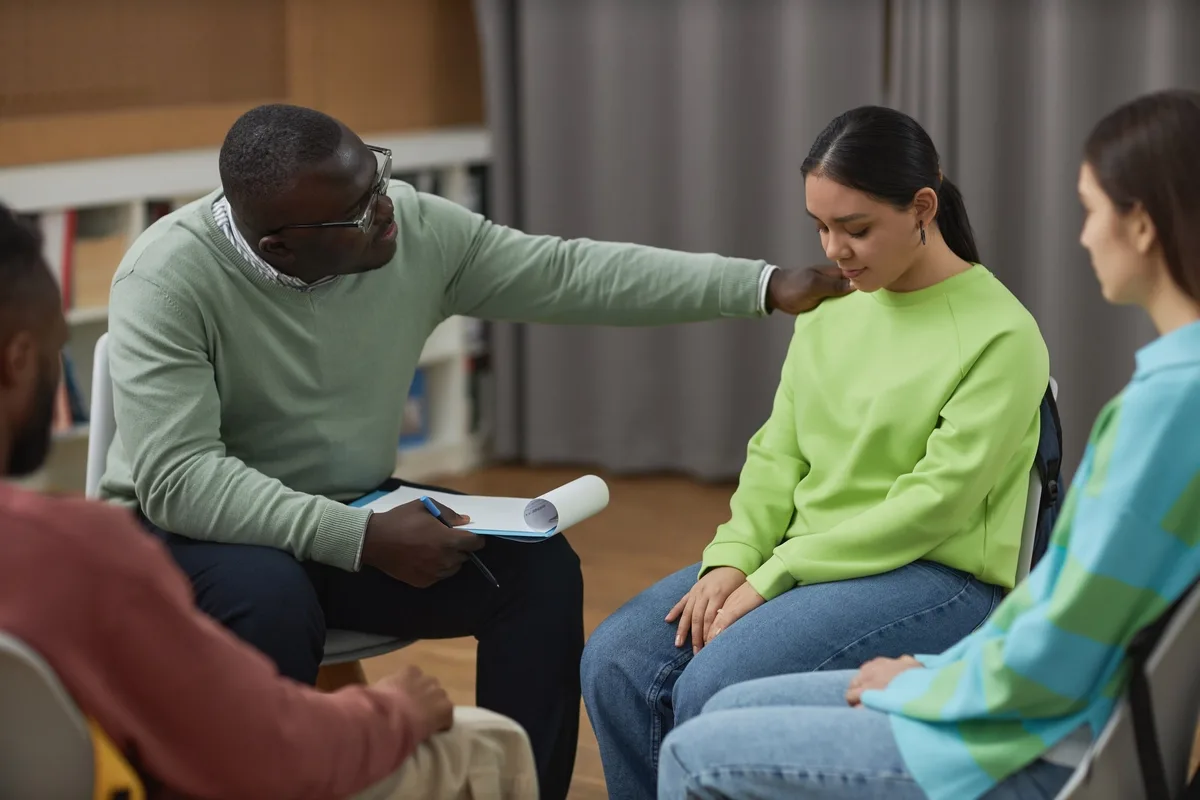24/7 Helpline:
(866) 899-221924/7 Helpline:
(866) 899-2219
Learn more about Ativan Detox centers in Marshall County
Ativan Detox in Other Counties
Other Categories in Marshall County

Other Insurance Options

Health Net

Ambetter

Group Health Incorporated

Cigna

Optima

Sutter

PHCS Network

Holman Group

CareFirst

Sliding scale payment assistance

Oxford

UMR

Medical Mutual of Ohio

Health Partners

WellCare Health Plans

AllWell

Magellan

Optum

Anthem

Amerigroup














AA – Alcoholics Anonymous
AA – Alcoholics Anonymous is a private rehab located in Gilbertsville, Kentucky. AA – Alcoholics Ano...






































